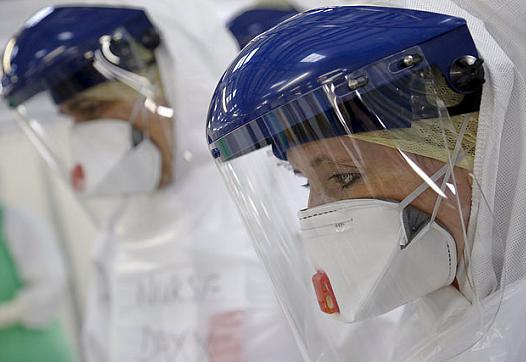
Just because a medical board takes action, it doesn’t mean that the action is adequate. Consider the case of Dr. Reinaldo de los Heros, a Maine psychiatrist who columnist William Heisel first wrote about back in 2010.

Just because a medical board takes action, it doesn’t mean that the action is adequate. Consider the case of Dr. Reinaldo de los Heros, a Maine psychiatrist who columnist William Heisel first wrote about back in 2010.

When it comes to a hospitalized child, it’s fair to say no one is keeping tabs more closely than the mom or dad perched bedside. It’s no surprise they’re often to the first to catch medical errors, as new research suggests.

Hospitals across Orange County and around the country are making mistakes that can be harmful, even deadly, to patients, but the public rarely finds out about them. Details of conditions inside Mission Hospital were hidden by the federal government for six months.

Starting in 2007, California’s hospital administrative penalties program was designed to bring greater accountability to hospitals that commit “never events” and put patients in immediate jeopardy. So, what does the data tell us about how well it's working?

The infections that patients pick up inside hospitals can be debilitating and even deadly. Yet many hospitals fail to follow simple protocols, and access to information is limited. Here are five tips for reporting on hospital infections.

As the law stands now, doctors on probation have to tell hospitals and insurance companies about the fact that they are on probation. But they don’t have to tell their patients. Consumer groups argue that should change and momentum is building in support of the idea.

The patient identified only as E.T. in documents had entered the hospital alive, with a slow heart rate. She died a few hours later, after Dr. Madhusudhan T. Gupta had tried to insert a pacemaker into her artery instead of her vein. Years would go by before the Medical Board took meaningful action.

During several inspections over the past five years, federal regulators cited the five local hospitals tracked by the Orange County Register nearly 100 times for infection control violations. The most common problems were incorrectly sterilized surgical tools and dirty operating rooms and equipment.

A year after Thomas Eric Duncan died from Ebola after seeking care at a Texas hospital, what’s different about health preparedness in the U.S.? Reporter Anna Almendrala set out to answer that question, and found a series of heartbreaking stories of loss along the way.

Dr. Gupta was performing a procedure in which a pacemaker is inserted through a patient's blood vessels. But he skipped a key step, and the patient's condition steadily worsened. The case is a reminder that the skills a physician has earlier in their career don’t always remain sharp toward the end.